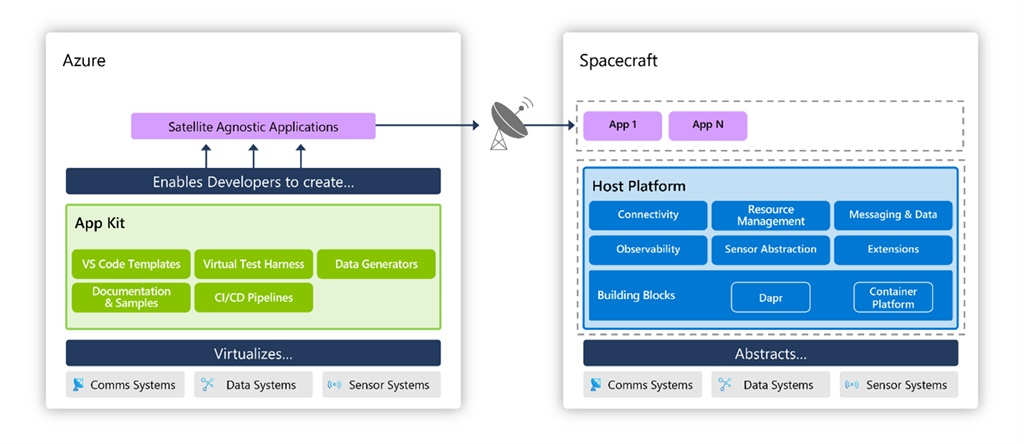| Microsoft Launches Orbital Space SDK |
| Written by Kay Ewbank |
| Thursday, 24 November 2022 |
|
Microsoft has released the preview version of Azure Orbital Space SDK, a secure hosting platform and application toolkit that they say will enable developers to create, deploy, and operate applications while in orbit. Earlier this year Microsoft announced a "vision to empower any developer to become a space developer through Azure". The tricky bit in this preview might be finding a spacecraft on which to do your developing! The Azure Orbital Space SDK was created to be able to run on any spacecraft and provide a secure hosting platform and application kit to create, deploy, and operate applications "on-orbit". The "host platform" runs onboard the spacecraft including a containerized, scalable compute infrastructure with resource and schedule management capabilities.
The application kit includes a set of templates, samples, and documentation, with template applications for common workload patterns such as earth observation image processing. There is also a "virtual test harness" that allows developers to easily test their applications on the ground against an instance of the host platform.
One of the main aims of the SDK is to make better use of the connectivity provided by remote sensing satellites. These have limited connectivity windows and bandwidth to communicate data back to the ground, but there's an increasing amount of data to send. The idea is that developers will use the SDK to create and host apps that are more intelligent, meaning they can capture data and use time more efficiently. The SDK creates a common template for performing imaging tasks, making it easier to transfer models and applications from one satellite configuration to another. The other key aspect of the SDK is communications management. The Azure team says that: "By bringing applications and intelligent computing on board satellites through the Azure Orbital Space SDK, we enable a more sophisticated management of satellite communications - resulting in lower costs and higher efficiency for satellite-based communication networks" The Azure Orbital Space SDK will also combine computing with networking capabilities for hosting telecommunication workloads, with the intention of allowing operators to move applications more easily from ground-based cell sites to satellites in orbit, enabling better resiliency and network utilization.
More InformationRelated ArticlesMicrosoft Updates Azure Cognitive Services Azure Functions 2 Supports More Platforms
To be informed about new articles on I Programmer, sign up for our weekly newsletter, subscribe to the RSS feed and follow us on Twitter, Facebook or Linkedin.
Comments
or email your comment to: comments@i-programmer.info |




